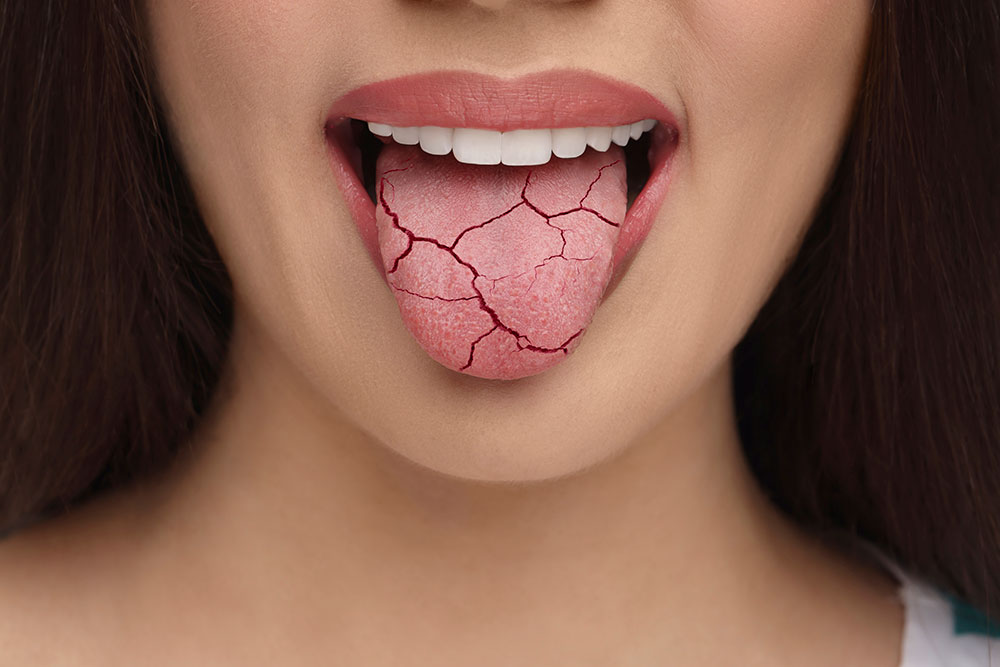Xerostomia, also known as dry mouth, is a condition characterized by reduced salivary flow in the mouth. While occasional dry mouth is normal, chronic or severe xerostomia can lead to discomfort and potentially serious oral health issues. Let’s delve into what causes xerostomia, its effects on oral health, and how it can be treated.
What Causes Xerostomia?
Several factors can contribute to the development of xerostomia, including:
- Medications: Many prescription and over-the-counter medications list dry mouth as a side effect. These may include antidepressants, antihistamines, diuretics, and medications for high blood pressure.
- Medical Conditions: Certain medical conditions, such as Sjögren’s syndrome, diabetes, HIV/AIDS, Alzheimer’s disease, and autoimmune disorders, can cause xerostomia due to their effects on the salivary glands.
- Radiation Therapy: Patients receiving radiation therapy for neck and head cancers may experience damage to the salivary glands, leading to xerostomia.
- Nerve Damage: Trauma or surgery to the head and neck area can damage nerves responsible for saliva production, resulting in dry mouth.
- Dehydration: Inadequate fluid intake or conditions that cause dehydration can lead to temporary dry mouth.
Effects of Xerostomia on Oral Health
Dry mouth can have several adverse effects on oral health, including:
- Tooth Decay: Saliva plays an important part in protecting the teeth by neutralizing acids, remineralizing enamel, and washing away food particles and bacteria. Reduced salivary flow can increase the risk of tooth decay and cavities.
- Gum Disease: Without an adequate saliva flow to cleanse the mouth, bacteria can proliferate, leading to gum inflammation and periodontal disease.
- Oral Infections: A constantly dry mouth creates an environment which is conducive to oral infections as the lack of saliva allows yeast and bacteria to flourish.
- Difficulty Chewing, Swallowing, and Speaking: Inadequate salivary flow makes it difficult to chew and swallow food properly, leading to discomfort and difficulty in speaking.
- Bad Breath: Salivary flow helps to cleanse the mouth and neutralize odorous compounds, so decreased saliva flow can contribute to persistent bad breath (halitosis).
Treating Xerostomia
While xerostomia can be uncomfortable, several strategies can help alleviate symptoms and improve oral health:
- Keep Hydrated: Consume lots of water during the day to help keep the mouth moist.
- Choose Sugar-Free: Chewing gum or sucking on candy stimulates saliva production.
- Use Saliva Substitutes or Oral Moisturizers: Over-the-counter saliva substitutes or oral moisturizers can help provide relief from dry mouth symptoms.
- Avoid Caffeine and Alcohol: These substances can contribute to dehydration and worsen dry mouth symptoms.
- Practice Good Oral Hygiene: Brush and floss your teeth frequently to help prevent tooth decay and gum disease.
- Speak to Your Healthcare Provider: If xerostomia is medication-induced, your healthcare provider may adjust your medication or prescribe alternative treatments.
Xerostomia is more than just an inconvenience; it can also affect oral health and overall well-being. If you’re experiencing persistent dry mouth, it’s essential to consult with your dental professional to address the underlying cause and prevent potential complications. Contact us to learn more or to schedule a consultation.

